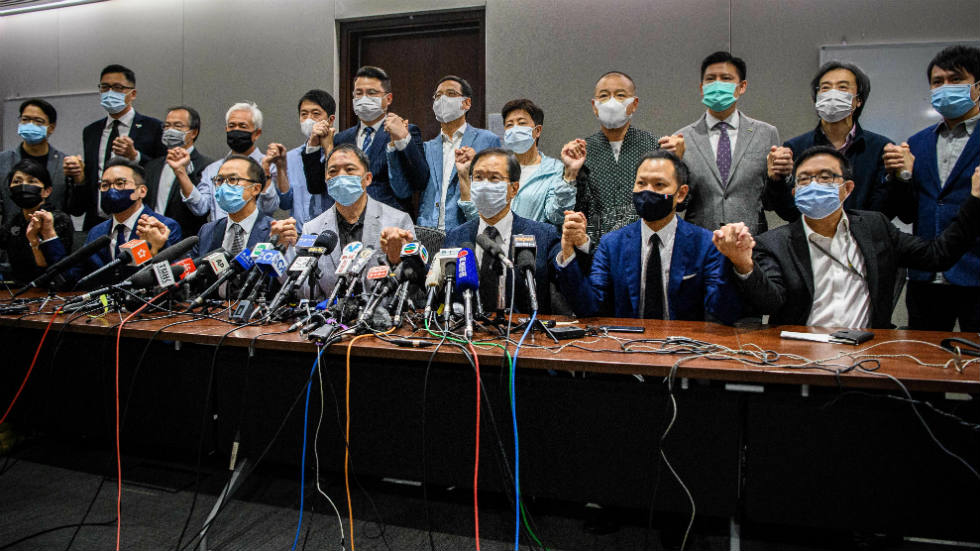
US, Australian, Canadian and British diplomats released a joint statement on Sunday condemning the detention of more than 50 activists in Hong Kong, describing it as evidence of the city’s strict new national security law being used to target dissidents.
Hong Kong officials announced the arrest of about 55 people last week, the largest mass arrest since China imposed a new national security decree in 2020, according to the Associated Press. mentioned. All but three of them were released on bail.
The majority of the detainees participated in unofficial primaries for legislative elections that have since been postponed, and which Hong Kong authorities have claimed violates the law.
“It is clear that the National Security Act is being used to eliminate dissent and opposition to political opinions,” stated the joint statement by the US Secretary of State. Mike PompeoMike Pompeo, Cruz and other Trump allies condemn the Twitter ban on President Sanders and defend the pressure to impeach Trump: The rebellion will not be tolerated Pompeo meets with Biden’s foreign candidate as part of the transition MoreAnd Australian Foreign Minister Maryse Payne, British Foreign Minister Dominic Raab and Canadian Foreign Minister Francois Philip Champaign. “We call on the central authorities in Hong Kong and China to respect the rights and freedoms legally guaranteed to the people of Hong Kong without fear of arrest and detention.”
Pompeo separately announced this weekend that the United States would lift diplomatic restrictions on ties with Taiwan, which were previously in effect as a concession to Beijing, which considers the island a Chinese territory.
Hong Kong officials accused the diplomats of improper interference in sovereign affairs, saying, “We are horrified by observations made by some government officials abroad that seem to indicate that people who hold certain political beliefs should be immune to legal sanctions.”
Western diplomats described the National Security Act as one of the Chinese government’s most overt moves to undermine Hong Kong’s autonomy since the British government handed over control in 1997 under the rule of “one country, two systems”. This followed protests that continued for most of 2019 over a bill that has since been withdrawn that would have allowed the extradition of some suspects to China.






